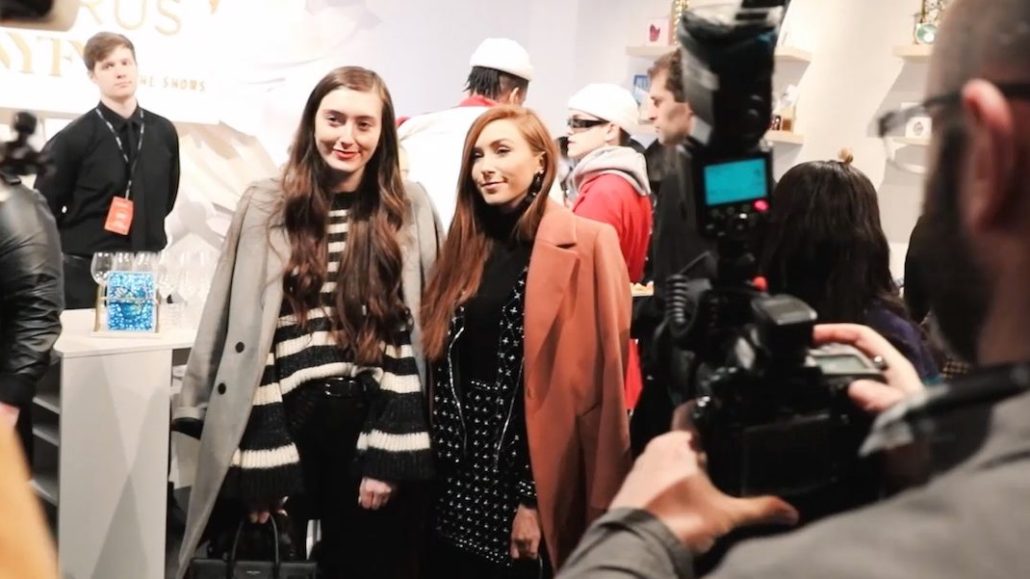Save 50% on a 3-month Digiday+ membership. Ends Dec 5.
How Juicy Couture and sister brands are automating their in-house influencer campaigns

Brands bringing influencer marketing in-house is a relatively new trend, but Authentic Brands Group has handled it internally for the past six years for its lineup of lifestyle and fashion brands. Today, ABG owns 32 brands, including heavyweights like Aéropostale, Juicy Couture, Neil Lane and Airwalk, and it’s no longer so easy to rely on old methods.
In an effort to efficiently scale and manage its influencer program, ABG implemented in February its own in-house influencer platform called Winston, said Natasha Fishman, ABG evp of marketing. Winston, which is managed by AGB’s nine-person internal digital innovation team, operates like most platforms prevalent at influencer agencies today, automating the tedious process of discovering the right influencers for ABG’s brands and organizing a once chaotic system of vetting and paying influencers.
ABG has used Winston to run campaigns for Aéropostale, Juicy Couture, Airwalk and Tretorn, Fishman said.
Before Winston’s launch, every influencer campaign ABG developed was handled manually. ABG stockpiled all information it had on its influencer partners on a master spreadsheet on Google Sheets, and if a brand was working with 100 influencers for a specific campaign, they had to be paid individually.
“It quickly became clear that we couldn’t operate at scale without a real software solution,” said Fishman. “No longer do I have to cut a hundred checks for the hundred influencers I worked with around Coachella for a Juicy campaign. Instead, it all flows through the system.”
ABG is recruiting influencers for Winston, with a focus on recruiting micro-influencers, which generally have a following between 10,000 and 250,000 people on the platform. Fishman said that since Winston launched, about 1,000 micro-influencers, with a combined following of 75 million people, have been signed on by ABG.
“Whether you’re a millennial, Gen Z or Gen X, you have an expectation that content will be authentic, and we tend to get more of that from micro-influencers,” said Fishman.
Ad position: web_incontent_pos1
Winston is built on Instagram’s application programming interface, meaning that influencers have to sign up for the program using their Instagram accounts and are vetted and approved to work with ABG based on those accounts.
When influencers sign up through Winston, the platform has them select categories their content speaks to, like fashion, beauty, gaming or travel, and then choose which ABG brands they would like to work with. Influencers also put in their apparel sizes so that brands can easily send them the right products. Next, Winston vets each influencer, making sure their content aligns with the aesthetic of the specific brands they are interested in working with, and registers them with the platform.
ABG brands can then use filters on Winston like age, gender, number of followers, location and likes per post to determine which influencers they want promoting their brand for a particular campaign. Once an agreement is reached, influencers share the content they plan to post, brands approve it and provide payment, and a Google Analytics-style reporting page tracks the estimated reach of and total likes and comments on each post.
Winston allows ABG to broaden its influencer pool, especially when it comes to developing relationships with international influencers. Since Winston is built on Instagram’s API, it can be used to connect with influencers in any country, excluding China. “Our brands are global brands,” said Fishman. “Influencer marketing is important anywhere else in the world as much as it is here in the U.S.”
Ad position: web_incontent_pos2
In March, Aéropostale tested Winston, using it to invite Mexican influencers to an event in Los Angeles where the brand was promoting a new fashion collaboration with actress and singer Sabrina Carpenter. “We wanted to bring communities together, and integrate fans from both the U.S. and Mexico,” said Fishman.
ABG also wants to license Winston to outside brands at a monthly rate with different pricing tiers, depending on the amount of influencers they want to access. “We are currently talking to other companies and other brands about using Winston as a white label solution for their influencer program,” said Fishman, though ABG wouldn’t reveal the specific brands.
More in Marketing

Ulta, Best Buy and Adidas dominate AI holiday shopping mentions
The brands that are seeing the biggest boost from this shift in consumer behavior are some of the biggest retailers.

U.K. retailer Boots leads brand efforts to invest in ad creative’s data layer
For media dollars to make an impact, brands need ad creative that actually hits. More CMOs are investing in pre- and post-flight measurement.
Ad position: web_bfu



